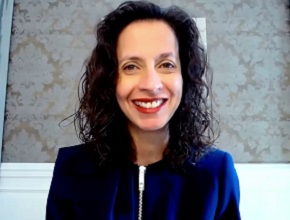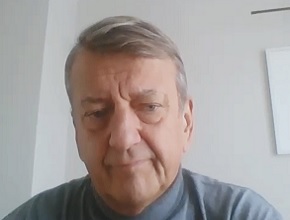Dr Giuseppe Mancia, professor emeritus at the University of Milano-Bicocca, past president of the International Society of Hypertension and the European Society of Hypertension, and author of over 1000 papers in peer-reviewed journals, joins Dr Roman Jaeschke to discuss the use of ACE inhibitors and ARBs in the context of COVID-19.
References
Mancia G, Rea F, Ludergnani M, Apolone G, Corrao G. Renin-Angiotensin-Aldosterone System Blockers and the Risk of Covid-19. N Engl J Med. 2020 May 1:NEJMoa2006923. doi: 10.1056/NEJMoa2006923. Epub ahead of print. PMID: 32356627; PMCID: PMC7206933.Roman Jaeschke, MD, MSc: Good morning. Welcome to another edition of McMaster Perspective. I have a privilege of introducing Professor Giuseppe Mancia, a giant figure in hypertension. I have never met anybody who has over 1000 publications on one topic, but this is what you get when you enter his name in PubMed. Professor Mancia is the editor in chief of the Journal of Hypertension, and the list of his titles is too long to quote here.
Professor Mancia, I have several topics that I would like to discuss with you. Let’s start with your new paper in the New England Journal of Medicine (NEJM) from the beginning of May and the big question that physicians across the globe have: what to do with angiotensin-converting enzyme (ACE) inhibitors and angiotensin receptor blockers (ARBs) in people with hypertension in the era of coronavirus disease 2019 (COVID-19)? The floor is yours.
Giuseppe Mancia, MD, PhD: This of course is an issue under discussion. I think it was appropriate to discuss it. Since the discovery that severe acute respiratory syndrome coronavirus 2 (SARS-CoV-2) enters the cell through the enzyme ACE—and ACE is modulated and upregulated by renin-angiotensin system (RAS) blockers—a hypothesis was made that these very commonly taken drugs could somehow increase the risk or severity of COVID-19; these drugs are life-saving not only in hypertension but also in heart failure, chronic kidney disease, and post–myocardial infarction state. This was a matter of major concern because many people could have stopped treatment, and we know that stopping a life-saving treatment is associated with a major increase in the risk of disease and death. Several papers were published on small numbers [of patients] and we thought that we could obtain interesting information by analyzing what types of drugs people were taking before getting COVID-19.
We used the Lombardy database. Lombardy is the region where I live, which was unfortunately badly hit by COVID-19. The health authorities have organized a very nice database with detailed information on all kinds of treatment reimbursed by Italy’s National Health Service that people were and are taking.
We had data from more than 6000 people with COVID-19 and we compared these with more than 30,000 controls (identical age, identical gender representation, identical municipality of residence). It turned out that infected people used ARBs and ACE inhibitors more frequently than controls, but this was the case for all hypertensive drugs. It was also the case for many other drugs that we included in the analysis, for example, oral antidiabetic drugs, anticoagulant drugs, antiplatelet drugs, and so forth.
When we adjusted for a number of potentially confounding variables, there was no evidence that either ACE inhibitors or ARBs were involved in the risk of acquiring COVID-19 or of severe infection. We analyzed separately people hospitalized in intensive care units and those who died. This provided data that this fear of having an increased risk of infection because of the background treatment with RAS blockers had no reason to exist and that we should continue these treatments to save patients from the adverse effects of high blood pressure.
The greater use of these drugs is just a reflection of the fact that people with poorer background health are more prone to the infection. This in a way was a confirmation of what had already come up, because of the large number of papers from China and outside of China, that more sick people get the infection more easily.
Roman Jaeschke: Before I try to summarize what I heard, I wonder whether people with comorbidities, like diabetes or hypertension, have a higher chance of getting infected or of having symptomatic infections. Do they somehow get sicker? It’s a speculation. Do you have any comment on that?
Giuseppe Mancia: I think in the end what is likely to happen is that having hypertension or having diabetes—these are risk factors associated with asymptomatic organ damage in the heart, kidney, brain, and lungs. And it is this background, the worse situation of organ structure and function, which facilitates the infection and the severity of the infection.
There is a unifying element in a way: there is a number of conditions that are more frequent in patients with COVID-19 and much more frequent in patients who died because of COVID-19, one of them being hypertension. But there isn’t really a causal relationship between high blood pressure and COVID-19. There is that intermediate step of organ damage.
Roman Jaeschke: Thank you very much. You said there is no evidence that these drugs are detrimental. I would even go a little bit further to say that, among others, your study provides evidence that there is no significant deleterious effect or simply that there is no influence of using ACE inhibitors on the presence and severity of COVID-19 infection, which is quite reassuring for a number of people. I think that’s the current wisdom.
Giuseppe Mancia: It is reassuring because it provides data. There was another paper in the NEJM, also on a very large number of patients with COVID-19, and the data go in the same direction.
Before, scientific societies were concerned about the stopping treatment phenomenon because of the rebound of cardiovascular events and deaths. They recommended not to stop treatment, but this was not based on evidence. It was equating the absence of evidence with negative evidence, which is not exactly the same.
Roman Jaeschke: And now you provided very reasonable evidence to support this notion, which turns out to be correct. Thank you very much for this part of the interview.
 English
English
 Español
Español
 українська
українська











